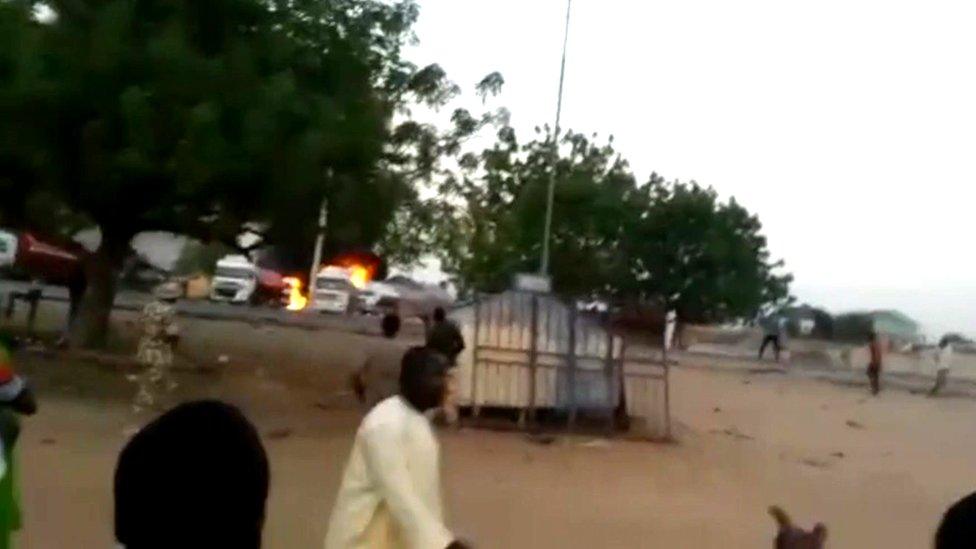Dapchi kidnappings: Nigeria families' heartbreak and despair
- Published
Fatima's best friend Zara was abducted: "They were pretending they would help us"
The kidnapping of 110 girls from a school in the north-eastern Nigerian town of Dapchi bears striking similarities to the 2014 abduction of 276 schoolgirls from Chibok - right down to the contradictory information from the authorities. The BBC's Stephanie Hegarty went to the town to visit the school and meet families of those missing children.
The grounds of the boarding school in Dapchi town are eerily quiet. Instead of the high-pitched chatter of 900 schoolgirls, there's only the bleating of goats as they wander through empty classrooms.
Thirteen-year-old Fatima Awaal is walking down the dusty path. She walks past a littering of rubber sandals, lost by girls as they ran away on Monday 19 February.
When the militants from the Boko Haram Islamist group attacked, she was in her boarding house with her best friend Zara. They were just about to have dinner when they heard the gunshots.
"One of our teachers told us to come out," she said "And that's when we saw the gunfire shooting through the sky."
The militants were coming from the far end of the compound, firing in the air.
Stephanie Hegarty reports from Dapchi girls' school
"We started running, many of the girls were screaming," Fatima said. "We were running towards the gate. As we were running the militants were shouting at us to stop. They told us to get in the trucks, that they were there to help us. But we just ran."
The attackers were in military fatigues, but they were wearing sandals and they had beards and turbans on their heads. She knew they were Boko Haram, but some girls were confused and went with them.
As Fatima was running she lost her best friend. Zara Tijjani is a little older at 14, but they grew up around the corner from each other and spent all their time together at school and in the holidays.
'My heart is breaking'
Zara's home is a big mud-brick building in a large compound close to the school. Her father Yussuf is a farmer and community leader. He told us that on the night of the attack, the family heard gunshots from the school and the sound of girls screaming.
"I ran over there to get my daughter," he said. "I was about to climb the fence when I saw the men shooting."
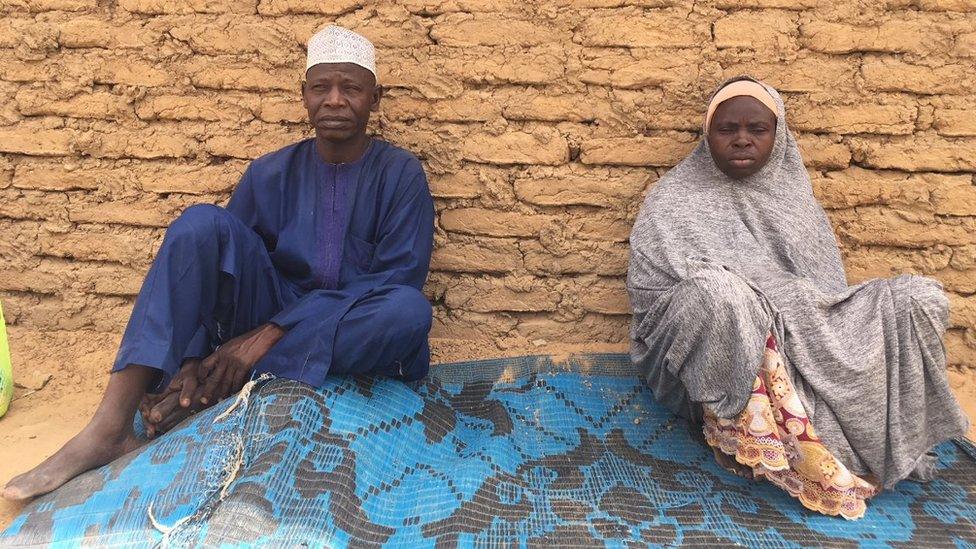
Heartbroken parents Yussuf and Habiba Tijjani can do little but wait - and pray - for news of daughter Zara
He had to run back to his compound, where he met more than 100 children taking refuge.
He searched and searched through the crowd for his daughter. By the morning he knew that she had been taken.

Read more:

As we spoke, Falmata's 25-year-old sister was listening, washing dishes. Absent-mindedly, she swished soapy water around the big plastic buckets.
I started to ask her about her sister.
"We are very close," she said. Then her voice cracked, she stopped. She dropped her head into the nook of her elbow and started sobbing.
"I can't stop thinking about her. The worst thing is that we don't know how she is, we don't know what she is going through."
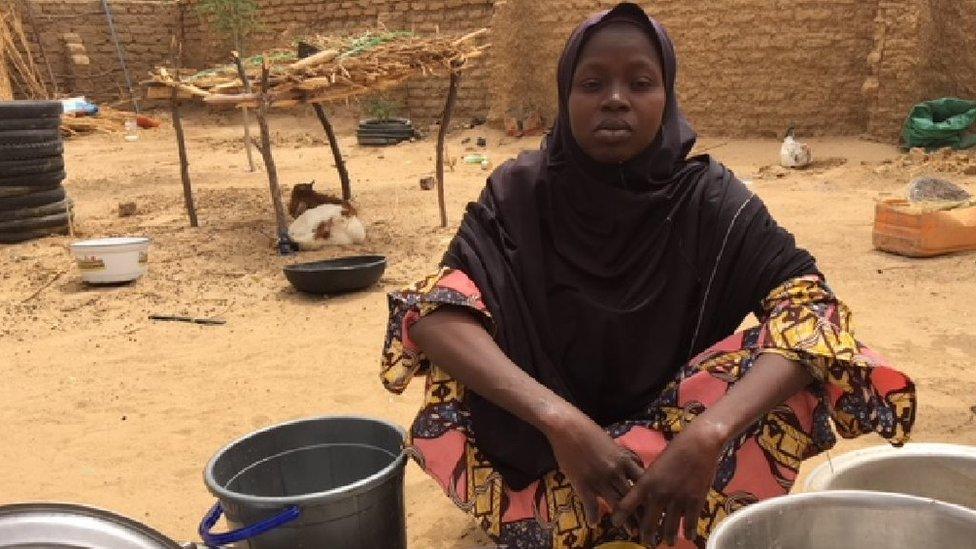
Falmata, Zara's sister, says she cannot stop crying
Sitting on a mat outside their house, Zara's mother and father showed us some of her schoolbooks, her name scribbled over and over across the pages. Her favourite subject was business, her friend Fatima had told me. "Yes," her proud father said, pointing to the teacher's full marks etched in red on the pages.
"She's a good girl, so caring," mother Habiba said. "We are very close but now we've lost her. My heart is breaking. She's my daughter and I don't know where she is or who she is with."
'The children of poor men'
Zara is just one of 110 girls who were taken that night. All around the small town of Dapchi, families are grieving.
Like the Manugalawans. Eighteen-year-old Hafsat was in school that night when she heard the gunshots, grabbed her 15-year-old sister Hauwa, and ran.
"The Boko Haram man was shouting at us to stop, he said he would shoot but we kept running," she said.
Hafsat paid the words no heed. They ran towards a perimeter fence and she told her younger sister to climb first. But when she got to the other side, Hauwa was gone.
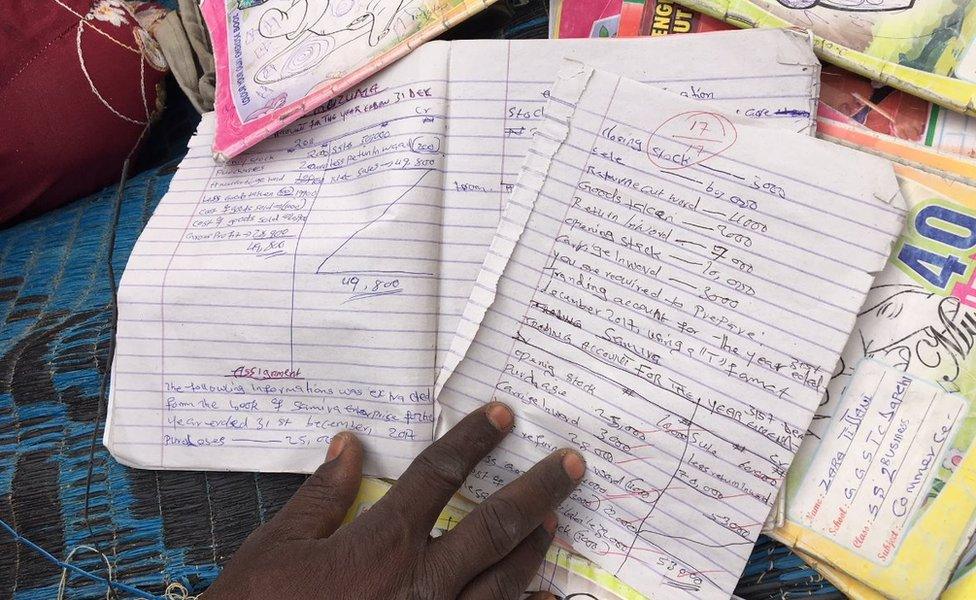
Zara's parents were proud to show off her books and high marks
Their mother Joloni Mohamed is angry. "I can't put in words how I'm feeling," she said. "Only God knows."
"At the beginning we were told that our daughters were rescued, that they were on our way back to us," she said. "That was the hardest part."
She was referring to an announcement by the governor of Yobe State two days after the attack, claiming that some girls had been rescued. The following day the governor addressed parents, admitting that the rescue had never happened.
Standing outside as we spoke to Joloni was yet another anguished relative: Her next-door neighbour Aisha Isa Kalallawa. She was holding her phone, waiting to show us pictures of the three sisters she lost - Maryam, Fatima and Falamatu. The youngest was 14, the oldest 17.
On every corner of this small town there is a sad story.
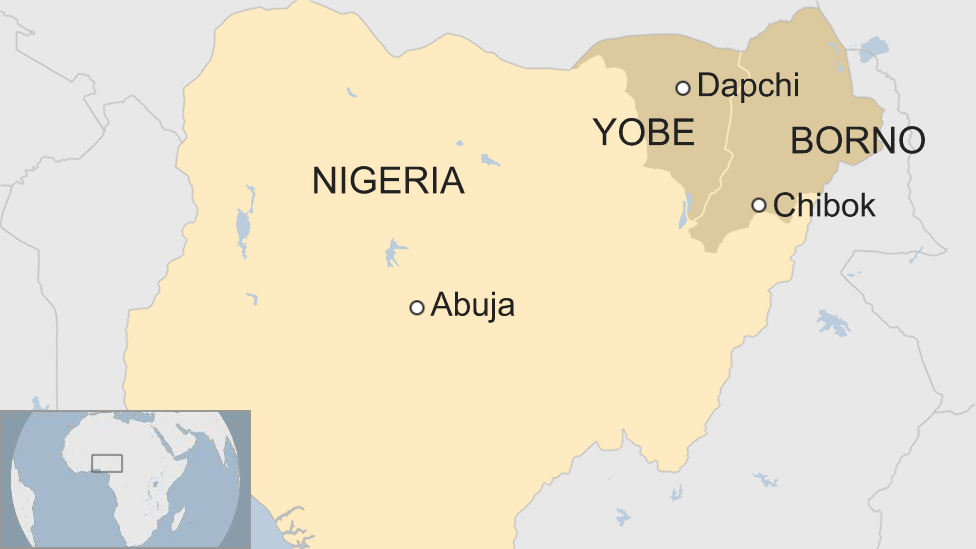
Since the kidnappings, there have been many conflicting lines from the authorities on what exactly happened in Dapchi that Monday night. It wasn't until three days after the assault that they finally acknowledged some girls had been taken. It was another three days before they gave a number of how many were missing.
Now, President Muhammadu Buhari says the army and air force are in pursuit of the girls and are doing everything it can to find them. But most of the parents we spoke to don't feel they are doing enough.
"I don't know why the government has not reacted faster," said Zara's father Yussuf. "But these are not the children of senior politicians, they are the children of poor men."
Over the past week, the echoes of the Chibok kidnapping have never been far from people's minds - least of all the parents of Dapchi. Four years later, more than 100 of those girls are still missing.
The biggest fear of the families here is that they will also wait years until they see their daughters again - that is if they see them at all.
- Published26 February 2018
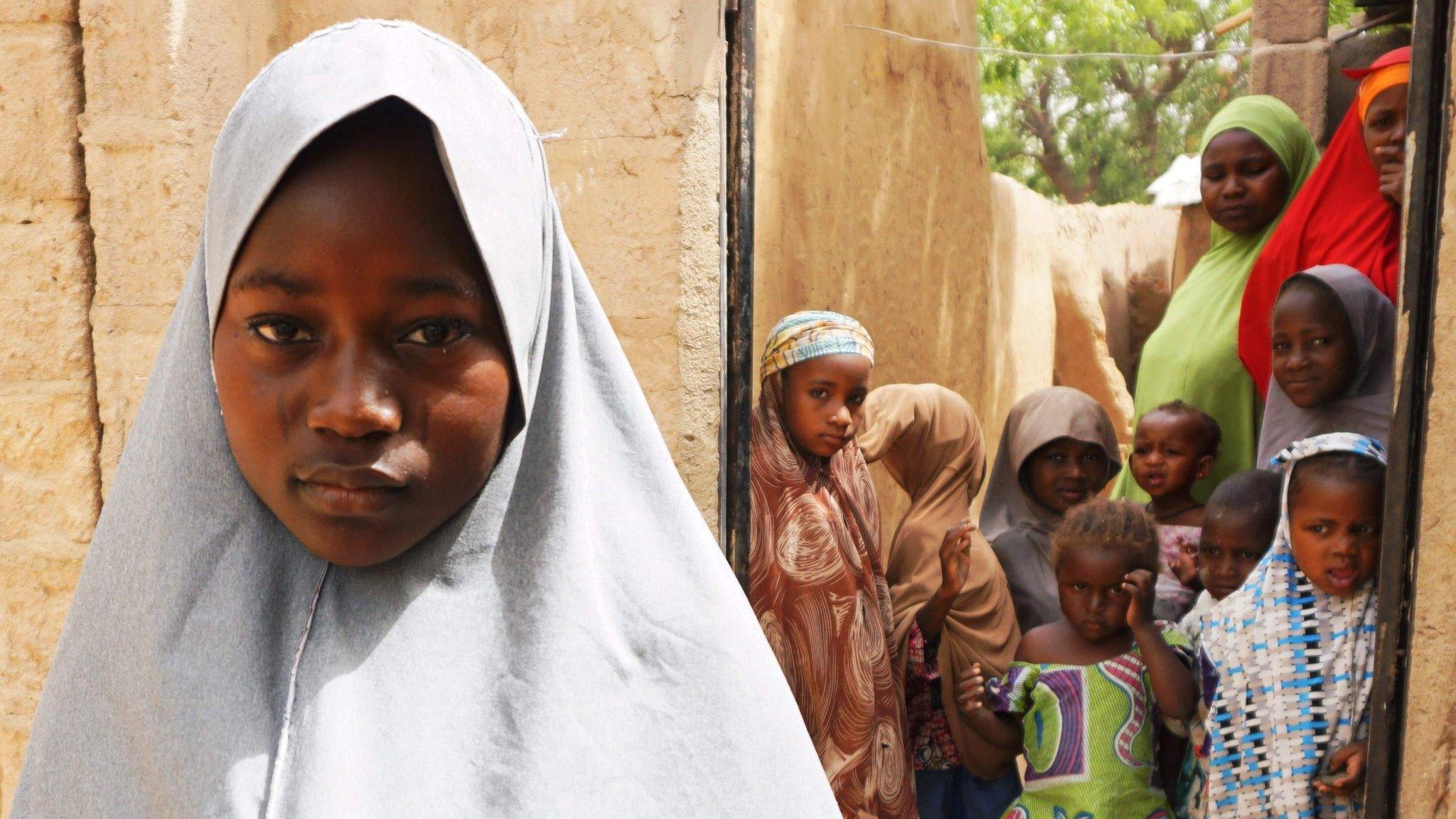
- Published23 February 2018
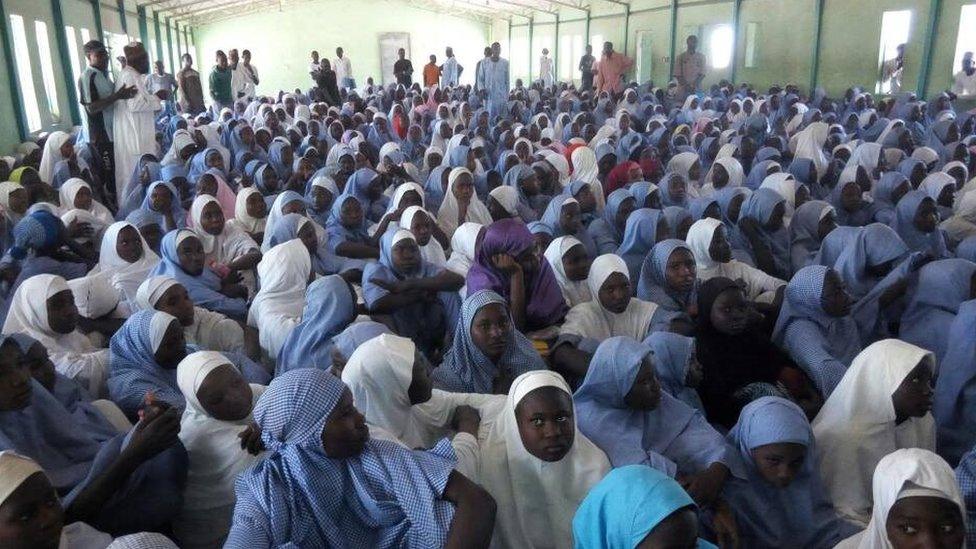
- Published24 November 2016

- Published25 January 2018
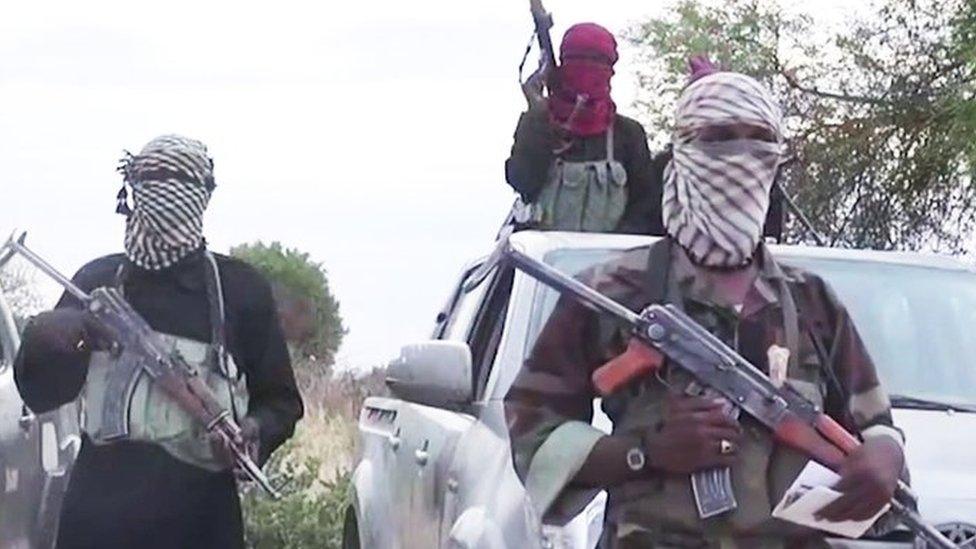
- Published14 April 2017
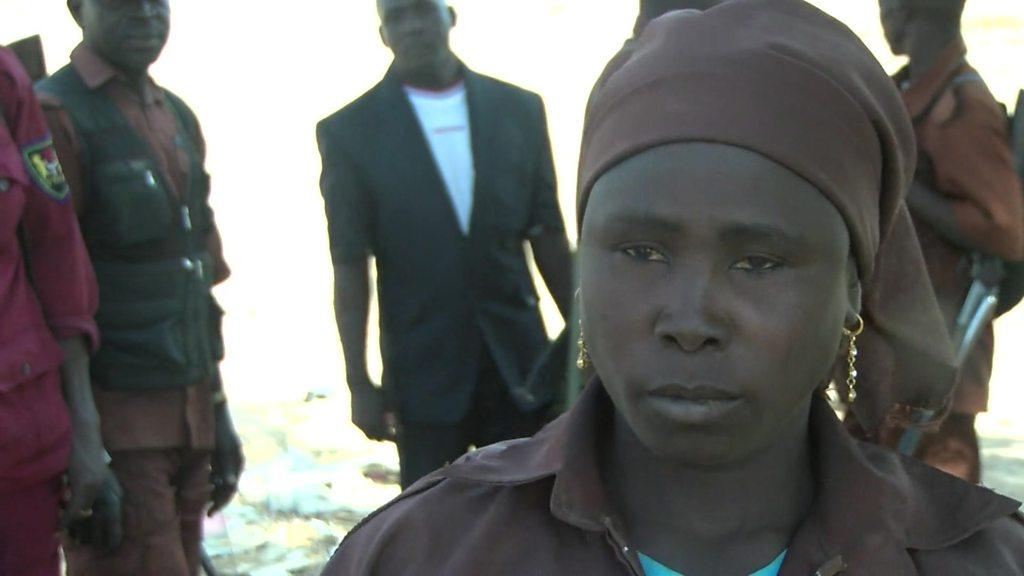
- Published4 January 2018
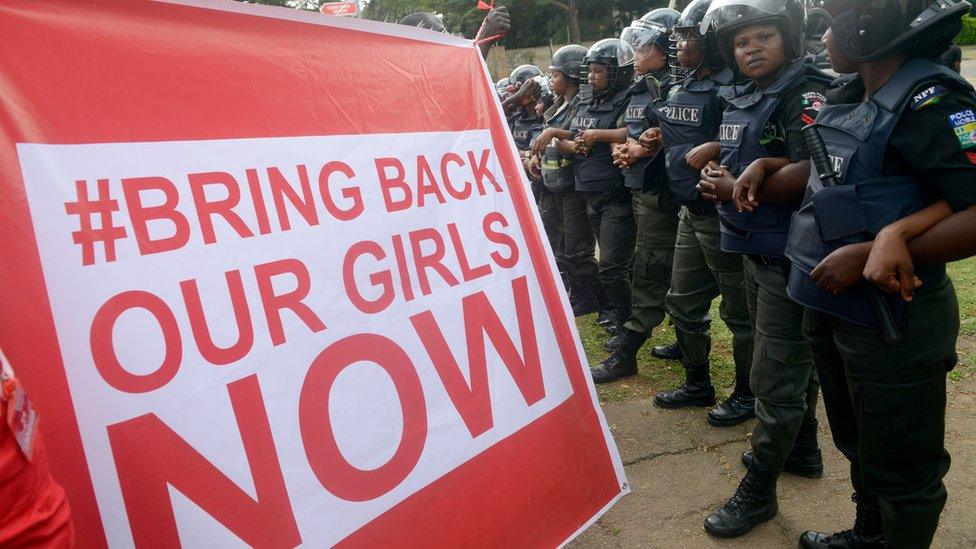
- Published23 October 2017
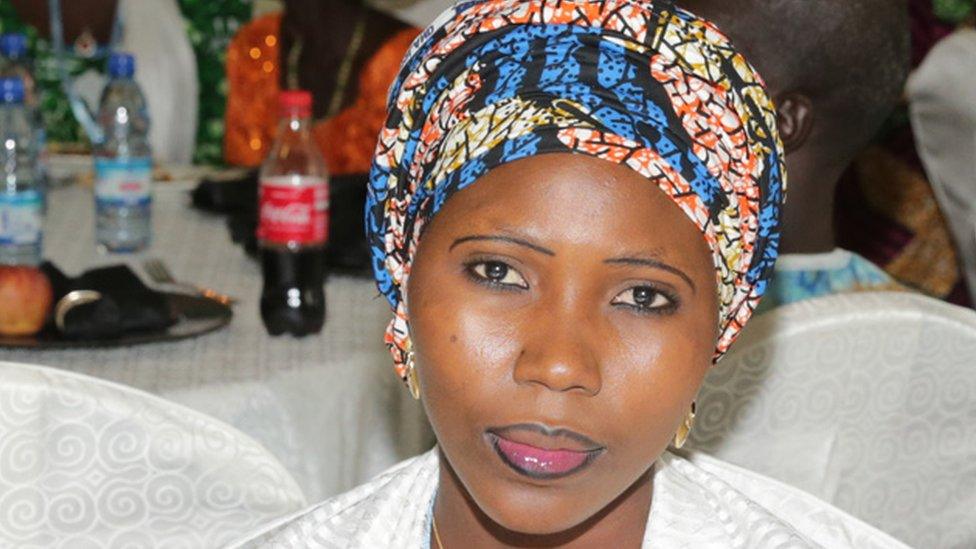
- Published31 March 2017
